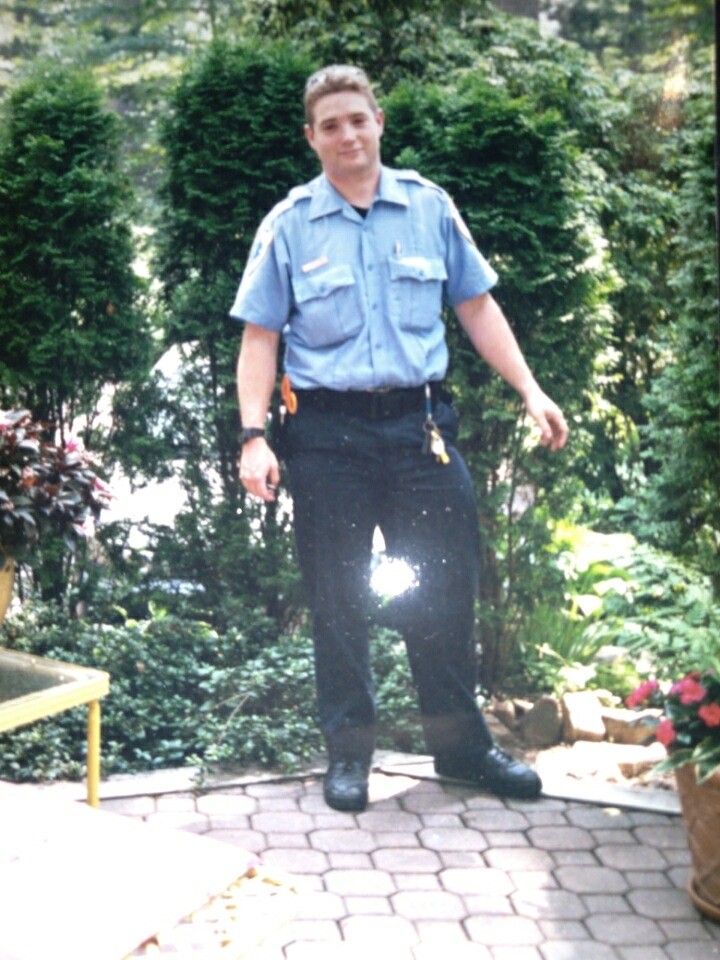On the morning of September 11, 2001, the skies were clear. Joel Pirrone, now an emergency manager at FEMA’s National Response and Coordination Center, knew that a cloudless sky meant that a plane hitting one of the twin towers was probably not an accident.

At the time, Pirrone was working on a volunteer rescue squad in Summit, New Jersey. In the ambulance, on his way to take a boat across the river, he could see the two towers smoking in the distance. By the time he crossed the river, both towers had fallen.
Pirrone said it’s moments like these that it’s important to remember the impact that a disaster has on an individual level.
“If you think about a person who gets in a car accident or cuts their hand,” he said. “That’s a disaster to them just at the very micro level, that individual level. It’s the biggest thing that’s ever happened to them, probably in their life. Think about that 10,000 times modified, or 3,000 times and that’s what a disaster is because it effects a lot more people. If you don’t understand the micro level, you’re never going to understand the scale and the scope of a larger disaster.”
When he stepped off the boat, he vividly remembers putting his foot on a catalogue that had been dog eared, with an item circled. There were still papers floating down all around him from the fallen towers.
“I remember thinking, holy cow, that was on someone’s desk in the world trade tower,” Pirrone said.
He would spend the next ten hours treating injured firefighters and helping those who had dust in their eyes. Pirrone had gone to school for emergency management but he says seeing it on this scale was different.
“It’s one thing to see it in a book, in theory, in academic concept, but when I was there at 9/11, I saw it play out in real time,” he said. “So it was very unique to see that in its raw form, not reading about it afterwards, not being there 2 hours or 10 hours after the fact, I was there shortly after it all happened, I was able to see it playout.”
One of his strongest memories is a moment he uses when teaching incident command and the importance of it. He was with a crew that had begun to crawl onto the pile to search for people that might be trapped in the rubble. Someone ordered them to evacuate, he could hear “get out of here, get out of here!” being shouted. There was a loud sound ricocheting off of the walls around them moments later.
“It was World Trade Center Tower 7 coming down,” Pirrone said. “I was very lucky that because someone who was in charge of incident management realized that the building was coming down before it fell down. It landed right where we were on the pile clearing people out. If they had not decided to evacuate us I would not be here. Because that system worked, I am here.”
Pirrone believes that September 11 changed the country and forced normal person to think and plan more for risks of terrorism.
“You’d prefer you didn’t have to think about it,” he said. “But given that it’s out there, it’s better that we think about it and be aware of it. It’s kind of like a smoke detector in your house. Fires happen, we know that, but at least we have fire detectors so we’re managing that risk.”
Pirrone spent 17 years working as an EMT, but soon after September 11, he found FEMA. There he has found many fellow firefighter EMT’s.
“When the bell goes off at FEMA, we need to be able to devote all of our time and resources to FEMA,” he says. “Survivors deserve that. That’s really what it comes down to, is helping people, who through no fault of their own have been affected by disasters, helping them get to the point of their new normalcy.”

